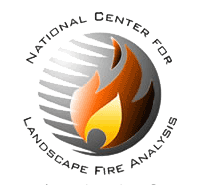Disciplines
The FireCenter at the University of Montana develops, synthesizes, and delivers scientific products, applications, and geospatial technology to improve fire and fuels management. It advances collaborative scientific research and graduate student education while improving the capabilities of natural resource professionals to provide socially desirable goods and services from forest and grassland ecosystems.
Our Areas of Focus
Fire Science & Technology Delivery
The FireCenter is engaged in developing science and technology that is targeted to the needs of fire and fuels managers. We will expand our development of two kinds of information technology with National Forest System partners and will continue to work in formal science delivery through structured partnerships:
- Expand the use and adoption of remote monitoring networks on four national forests in USDA Forest Service Region One.
- Develop, test, and evaluate new and novel methods for data collection and analysis which may include implementation on mobile devices.
- Design and implement a back-end data services capacity that will ingest fire weather data from portable electronic devices, generate summaries and trends that can then be distributed to users and decision makers.
- Continued partnering with the Northern Rockies Fire Science Delivery Network and the Fire Behavior Working Committee.
Remote Sensing
Our remote sensing program is oriented to the use of active and passive sensing systems that are used in both basic and applied fire and fuels sciences. We will continue our use of remote sensing through:
- Applications of terrestrial laser systems for fuel mapping and characterization.
- Using pre-during-and post-fire measurments to improve the performance of fire severity indices that are derived from satellite imagery.
- Work with prescribed fire managers to use imagery as a basis for considering the causes and consequences of fire severity.
- Monitoring, mapping, and quantitative resource assesment.
- Collaborate with USDA Forest Service Rocky Mountain Research Station scientists on large-scale laboratory investigations of flame geometry and behavior.
- Collaborate with USDA Forest Service Rocky Mountain Research Station scientists on field-based remote measurements needed for firefighter safety zone research.
People & Workforce in Fire
A keystone element in helping adapt to the changing fire environment is to invest in both the existing and future fire manager. These approaches have been characterized variously as workforce development, life-long learning, and experiential or service learning. In each instance, as a University-based Center, we can engage across the continuum of professional resource management. We will work to craft the fire manager of tomorrow through:
- Innovative service learning for undergraduates and graduate students at the University of Montana including the Prescribed Fire Practicum.
- Expand our detailers program with Wildland Fire Modules that allows the University of Montana staff to participate in fire assignments with Modules as well as bringing Module members to the University of Montana for intensive training and education.
- Work with student clubs and associations to develop career planning, networking, and job placement assistance.
- Engage in National Wildfire Coordinating Group cadres to offer sanctioned trainings in areas like GIS, Infared Imaging, Fire Behavior, Field Observer, and Fire Effects Monitoring and Incident Command.
Fire Information Management System
This work will be focused on the development of a fire information management system. This is a cloud-based service that allows for the management, retrieval, and sharing of all fire-related information. This project will:
- Investigate the use of non-structured databases and/or cloud-based object stores for managing disparate data generated in the course of fire management.
- Front-end web-based services will be deployed as a demonstration project to illustrate the way managers may interact with these data.
- Both cloud-based (e.g. Google, AWS) as well as open stack resources at the University of Montana will be used in this project.

